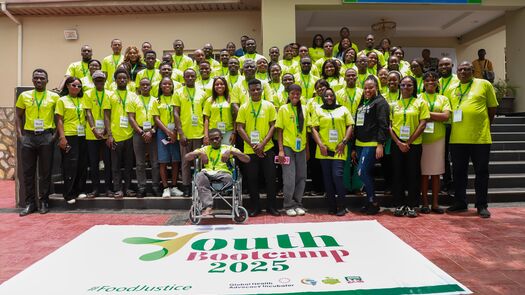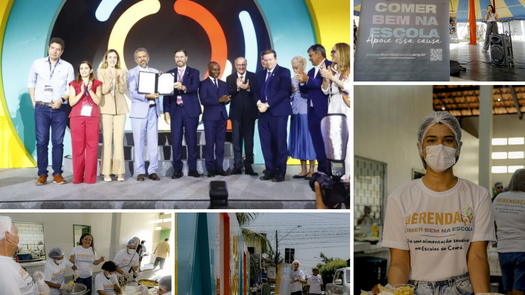November 25, 2025
Evidence shows that the global population, especially children and adolescents, are highly exposed to marketing tactics by the ultra-processed food and beverage industry. These aggressive marketing tactics often influence consumer’s food choices and behavior, but they also violate the human right to adequate food, nutrition, and information.

The Global Health Advocacy Incubator’s (GHAI) Food Policy Program launched its new webinar series on advancing marketing restrictions on ultra-processed products (UPPs) by the food and beverage industry. This series will discuss and analyze the challenges and opportunities, explore new and existing research, and ultimately identify the urgency to adopt measures that will advance these marketing restrictions.
The first event was moderated by Verónica Irene Schoj, MD, GHAI’s new Food and Nutrition Vice President and included panelists from around the world: Ana María Suárez and Laura Michéle from FIAN International, Corinna Hawkes from the University of London, Camila Corvalán from the University of Chile/INTA and Fernanda Mediano from the University of North Carolina Chapel Hill.
The biggest challenge identified to achieving effective policies that reduce children and adolescents’ exposure to UPP marketing is the lack of a global standard. Panelists acknowledge that developing one can be time and cost effective for countries but is ultimately worth it to combat the growing challenge of regulating policies at a country level. They also noted that voluntary approaches are not enough – there needs to be a collective mechanism to prevent the harms of UPPs that can be enforced and can hold industry accountable for their actions.
With a growing digital environment, identifying the mediums to implement restrictions is also a challenge. It’s not enough to place restrictions during certain times on TV and radio – children and adolescents have access to information and the industry’s marketing tactics at their fingertips with their phones, tablets, and computers. In order to address this, 81% of the participants said that a complete ban on marketing should be enforced, which includes any advertising, promotion and sponsorship strategies.
To learn more about how we can advance marketing restrictions of UPPs and create a global advocacy network, watch our webinar available in English, Spanish and Portuguese below.
English:
Portuguese:
Spanish:



